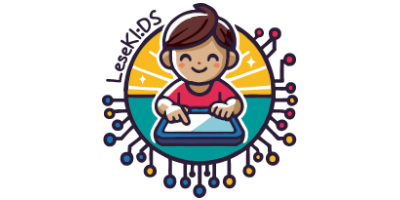Promoting reading skills through artificial intelligence and digital stories
The “LeseKI:DS” project, a cooperation between the Center for Research on Education and School Development, Goethe University Frankfurt and the Vodafone Foundation, aims to improve students' reading skills through a reading training programme using AI-generated texts. As part of the project, students go through the reading training programme with evidence-based components to promote reading, but can determine the content of the texts themselves. Part of the project is a randomised control group study to investigate the effectiveness of the programme.
Funding


Project description
The “LeseKI:DS” project, initiated by the Center for Research on Education and School Development in cooperation with Goethe University Frankfurt and the Vodafone Foundation, aims to improve students' reading skills through an innovative reading training programme. It utilises AI-generated texts that are geared towards the individual interests and abilities of the participants in order to sustainably promote reading motivation and skills. Over a period of 12 weeks, around 40 teachers will implement the programme in their classes.

The effectiveness of the programme will be evaluated through a randomised control group study, focusing on improvements in reading motivation, reading self-concept, reading skills and reading fluency. By personalising the content and using evidence-based teaching methods, “LeseKI:DS” aims to achieve significant progress in students' reading skills.
The central aims of the project are
- To create a structured reading training programme that includes evidence-based support modules and in which children receive personalised reading materials.
- Training teachers in the implementation of the reading training programme
- Investigating the research questions:
- Do children who learn with AI-generated and personalised texts show better developmental trajectories in terms of their reading motivation, reading self-concept, reading fluency and reading competence than children who read non-personalised texts?
- Do children who learn with AI-generated and personalised texts find it easier to complete the reading training tasks than children who read non-personalised texts?
- What lessons can be learned from the study to improve the training programme?
Lead researcher at IFS
Project team
External project partners
- Prof. Dr. Andreas Dengel (Goethe-University Frankfurt)
- Vodafone Foundation





![[Translate to English:] [Translate to English:]](/storages/ifs-ep/_processed_/8/5/csm_AdobeStock_412860748_9a2dbb816c.jpeg)
